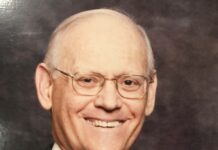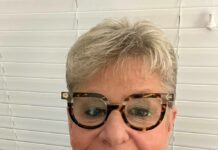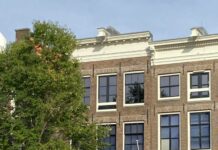
Having grown up in South Philadelphia in the 1950s, Alberta Marcus knows a thing or two about community.
“It was like being part of a family. Our neighbors were more family than friends,” Marcus said. “They would block off traffic, and we’d have block parties where everybody cooked food. It was a very caring community.”
She maintained a similar familial connection to her neighbors when she moved to her home in Northeast Philadelphia in her early 20s — the same home she lives in today.
Community-building more than shaped Marcus’ life; it’s how she’s making her mark on the Philadelphia community, serving as a founding member of the 51-year strong Unstructured Synagogue Havurah, a veteran teacher and informal documentarian of 20th-century Philadelphia life.
Marcus, 82, did not attend synagogue as a child, and did not have a ceremony to celebrate her becoming bat mitzvah, but her family was religious: Her mother kept kosher, and the family would celebrate holidays with neighbors of extended family.
“My mother was one of five kids — two sets of twins — so we would get together and celebrate the holidays together,” Marcus said.
She continued that model of Jewish living into adulthood.
In the 1960s, havurot — a Hebrew word meaning fellowship — sprung up all over the country; they were a means of providing egalitarian, democratized ritual experiences without the necessity of a rabbi or group leader.
Marcus and her husband Warren Marcus helped form their own havurah — dubbed the Unstructured Synagogue Havurah — in October 1970. They were joined by five other couples. The havurah recently celebrated 51 years together at an in-person gathering in Feasterville.
“It’s a totally different experience, a havurah,” Marcus said. “You don’t just observe, you participate.”
In the havurah’s early years, the couples’ children came of b’nai mitzvah ages, and Marcus’ son and daughter Sandy Marcus Lieberman had the experience she didn’t: celebrating becoming b’nai mitzvah among community members. Both children taught themselves to read Hebrew and read Torah, another opportunity Marcus missed growing up.
She remembers her son’s d’var Torah on the development of languages and her daughter’s on women in religion, delivered to the havurah in a member’s living room. She learned from them both, she said.
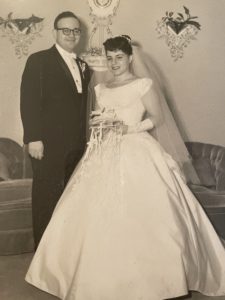
Along with other group members, Marcus learned each Torah portion, performing weekly skits.
Second only to her 51-year tenure as a founding member of the Unstructured Synagogue Havurah is her tenure as a teacher in Philadelphia, where she taught at both private and public schools for more than 30 years. She was a certified senior career teacher.
“I just wanted to instill in children the desire to learn,” Marcus said.
But Marcus didn’t always feel that way. In fact, she didn’t intend to become a teacher at all, turning only to the profession when her father died in her 20s. Marcus married shortly afterward and began teaching kids in the neighborhood.
She had previously enrolled at The Pennsylvania State University before transferring to Temple University and then the University of the Arts, originally wanting to study science and medical research.
Having come to terms with the fact that teaching would be the way for her to make the greatest community impact, Marcus began teaching kindergarten at the Alain Locke School and a local Quaker school.
Marcus’s most rewarding experiences teaching were the times when she was able to hear the thoughts of students and learn from them, she said.
On most days, she would sit the students in a circle and have them go around, giving their opinion on various topics and questions.
One student gave a response that Marcus still remembers to this day and is one that reflects her values as someone who is deeply embedded in a community, rather than instructing one from the outside: “Everybody is important.”
Now retired, Marcus has found other ways to continue to learn and find community in a time of profound and pervasive isolation from the ongoing pandemic.
She has taken creative writing classes at Holy Family University in Philadelphia with a fellow havurah member. Marcus also has taken classes on the Old Testament (taught by a priest), music, art and philosophy over her 11 years as a student there.
“I like to learn,” she said.
In her creative writing course, Marcus is working on documenting the story of her upbringing, something she hopes to pass down to her 23-year-old granddaughter Anna, who recently asked Marcus to take her to Marcus’ South Philadelphia childhood home — which was embellished with decorated closets and archways by her father that differentiated it from the other row homes.
Though as Marcus relishes the memories of her upbringing in her tight-knit neighborhood, she also recognizes how much things have changed since her time attending South Philly block parties and starting the havurah.
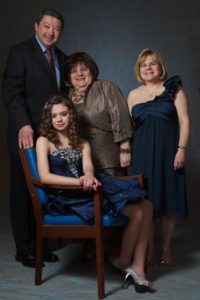
Marcus calls her home more “isolated” than it was in the past, and not just due to the pandemic.
“People just go to work, and when they come home, they’re tired,” she said.
As her daughter looks to join a new Reconstructionist synagogue in the area, Marcus also has to contend with different family traditions and practices. Her daughter was previously a member at Reform Congregation Keneseth Israel, where Marcus attended a few services and traveled to Israel with a group.
But Marcus is hesitant to becoming fully involved with a congregation, preferring to meet with havurah members, which is still a dozen or so members strong, but is now a group that is mostly well into their 70s and 80s.
Even amid changes to her neighborhood and to the Unstructured Synagogue Havurah, where she remains the last living founding member, Marcus is not interested in lamenting.
“I don’t feel sad at all now,” she said. “It’s been a very rewarding experience.”
[email protected]; 215-832-0741



